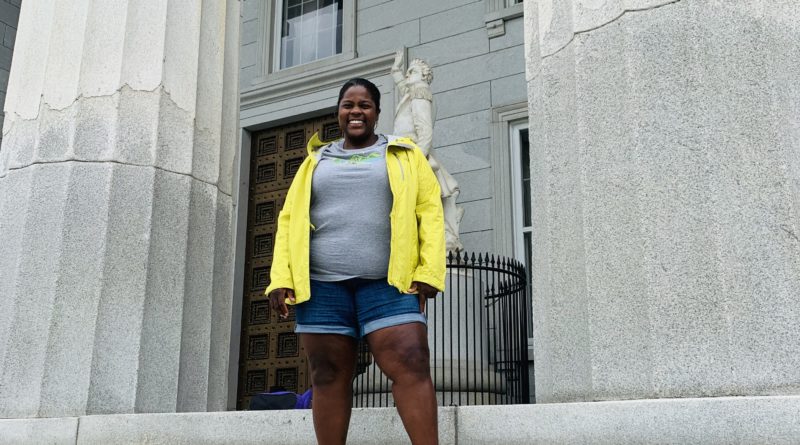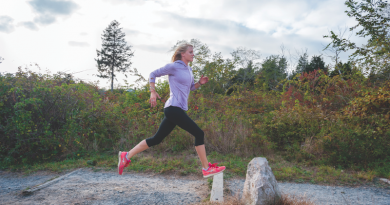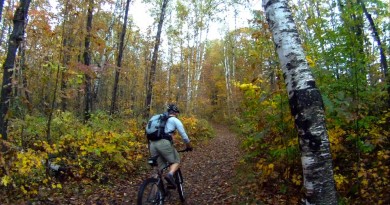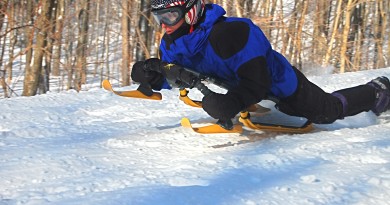Lessons In Perseverance
Want To Be Inspired? Read Mirna Valerio’s Story.
It’s been easy to feel discouraged these past few months as races get cancelled or events get postponed and the upcoming ski season hovers in a cloud-like limbo.
But these things pale compared to the daily horrors in the national news: the Coronavirus, the murders of George Floyd and Breonna Taylor, protests and violence around the country.
I was thinking about all this when I met Mirna Valerio on the steps of the State House in Montpelier in July. It was pouring rain but she slogged over from her apartment a few blocks away wearing a yellow rain slicker and Crocs. Within five minutes of talking with her, watching her incomparable beaming smile, that figurative cloud passed.
It is hard to fully do justice to the indomitable positivity Mirna exudes (though Sophie Hiland does an excellent job in her story “The Mirnavator” on page 20). Mirna is someone who has defied what might seem like every barrier possible to become one of the country’s most recognizable athlete/influencers and a 2018 National Geographic Adventurer of the Year.
Mirna didn’t grow up with sports or affluence at her fingertips. She’s been “big” as she puts it, since she was in second grade.
She’s African American and, until recently, lived in rural Georgia. She has had to pay the ‘Black tax’ (as Carolyn Finney says in Luke Zarzecki’s article, ‘Whose Woods Are These?’) her whole life. Mirna, like many other people of color in the outdoors, has had to overcome obstacles that 94 percent of Vermont’s population never have to face.
Yet, she has run more than 25 marathons or ultra marathons and she can now support herself via brand partnerships and her work consulting on diversity.
In short, she’s treated life with the same grit, hard work and sense of humor that she uses to get through an ultra race: she just keeps moving on.
Example: about half-way through our conversation she let it drop that she’s been nursing a patella tendon injury that has kept her from running. While that could be devastating to any ultra runner, not Mirna. “So, I’ve hired a cycling coach,” she said. “And I’m training for the Farm to Fork Fondo in the Champlain Islands. I can’t wait”
And yes, that event, like Mirna, is still persevering—as are a number of other races around the state— albeit with strict Covid-19 protocols. “We’re going to group people by pace time so that we limit interactions on the course,” says Rayne Herzog of RaceVermont which is putting on the Charlotte 5K, 10K and Half Marathon in September as well as several other races. No aid stations, no after party but still a chance to run with others.
This has also been a time that folks have been finding new solo challenges – witness the epic rides Phyl Newbeck writes about on page 7.
“The world completely turned upside down and caught on fire and George Floyd was murdered. I felt impotent and wanted to make some noise and maybe raise money for a good cause,” says Jared Katz, a former police officer from Richmond, told Newbeck. Katz rode 266 miles on his own on Juneteenth and raised money for the NAACP.
“Before the ride I talked to an African-American cyclist who said that when he goes for a ride and his wife says ‘be careful,’ it’s not just about the standard risks that every cyclist encounters. I knew that when I went on my ride, no matter where I went or what I encountered, I would encounter it as a white man,” Katz continued.
That’s something for us all to consider as we hike, bike or run.
It’s something we need to continually work to change. And that will take perseverance.
—Lisa Lynn, Editor




